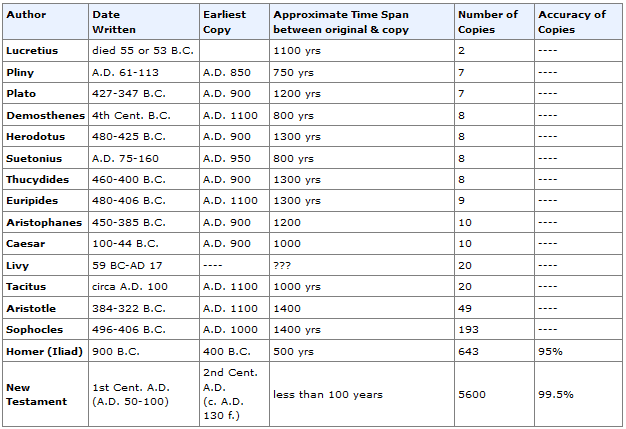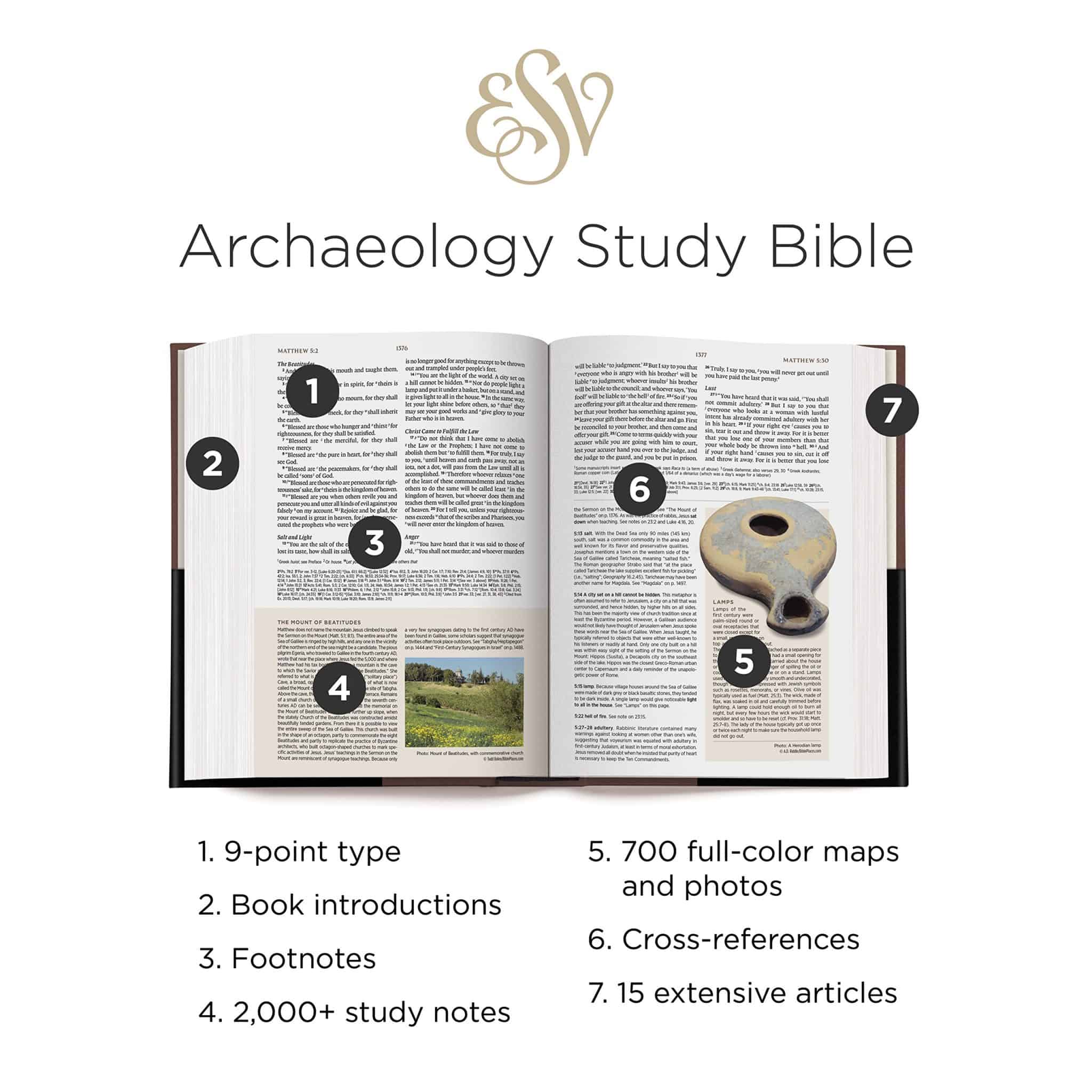Is the Bible Fiction? Evidence For the Bible

Is the Bible Fiction? How can an entire world be created in 7 days when a single high-rise building takes months?
How about the story of Noah and the flood? Could a worldwide flood really kill everyone except everyone on a gigantic boat?
What about the virgin birth? The last time I checked, it takes two to tango, right?
The Bible is filled with hundreds of stories that leave many skeptical about whether such miracles could at all be possible. Could there really be a God? Can the Bible be trusted?
Or is the Bible nothing more than exaggerated tales, consisting of myths and folklore’s compiled together? Why trust the Bible?
Whether you have questions on is the Bible trustworthy, why trust the Bible or is the Bible the word of God, I hope to provide you with some answers and offer proof the Bible is real.
In this article, we will be discussing the reliability of the Bible and the reason why I believe we can trust the Bible. My hope is that after reading this post, you will walk away with answers to your most burning questions on is the Bible a fictional story or the inspired word of God?

This post may contain affiliate links. You can read my full affiliate disclosure here.
Is The Bible Fiction?
Is the Bible true? Is there any proof that the Bible is real? How can we trust the Bible if it was written by man? This religious texts is the oldest book around and forms the foundation of Christianity.
In fact people sacrificed their lives to preserve it. It is hard to believe that persons would be willing to give up their lives for a book loaded with just myths and fables. Wouldn’t it have been easier to just renounce their faith if it were all just fictitious?
The Bible is a collection of books written by several different authors over a period of some 1500 years. The Bible contains 66 books which covers history, ethics, laws, poetry, philosophies and prophesies. It is split into two sections – the Old Testament with 39 books and the New Testament with 27 books.
Even though the messages were written by several different authors, the messages have proven to be both coherent and consistent throughout. Think about the gospels for a second, they were written by different writers yet they all similarly depicted the life and ministry of Jesus Christ.
2 Timothy 3:16 says, “All Scripture is God-breathed and is useful for teaching, rebuking, correcting and training in righteousness”.
The early Christians such as the apostle Paul faced terrible persecution for their faith. There were various emperors over the years who persecuted the Christians. Christians were often rounded up and torn apart as well as burnt alive. Such brutality, but despite it the word of God continued to spread and people stood up for what they believed instead of conforming to the request of those in power.
I often wonder if I were alive back then, would I have stood firm or would I have stuck with the majority and scarified to Roman Gods. What would you have done? So, how is the Bible trustworthy?
The permanency of the Bible despite efforts to do away with the word of God helps support the fact that the Bible is in fact reliable. But, before we dive any deeper into how accurate the Bible is, and provide proof the Bible that it is true, let’s first explore who really wrote the Bible and the accuracy of Bible translations.
Who Really Wrote the Bible
Where do the books of the Bible come from? As I pointed out earlier, the Bible was written by several authors as they were inspired by God. But, are there Bible history facts that can help support the authenticity of the Bible?
Back in the day, stories about God were passed on by word of mouth from generation to generation. As human society advanced, the stories were written down on papyrus which is a paper like material made from reed.
They weren’t written in one sitting but rather were collected over a time period. Scribes would often make copies of these writings before the documents became too worn out and unreadable.
In AD 90 a group of Jewish scholars met at the council of Jamnia where they developed the criteria which they used to determine what books should be included in the Jewish scriptures.
Criteria such as books should not be in conflict with each other, historically accurate and written by a great patriarch. From this council meeting they finalized the 39 books which would make up the old testament.
Another council later met in AD 397 and they reviewed the selections made by the original council as well as included additional books which now make up what we call the new testament. These books make up what we now know as the Bible today. Through the centuries, many people contributed to the writing of the Bible. Here is a quick reference cheat sheet for who wrote which books of the Bible.
Are the Bible Stories True?
How to know the Bible is true? Back in the day, I recall playing a game called “Chinese Telephone”. Our teacher would line us up as children then whisper something in the ear of the first child. That child would then whisper the message into the ear of the next child and this continued down the line. I always found it hilarious and amazing how the message at the very end turned out to be quite different from what the sender intended.
The message got distorted as it traveled down the line. This is exactly what some people think of when they think about the concept of copying the Bible. The Scribes were however very meticulous in how they preserved and copied the synagogue scrolls.
They followed rules such as: “only using parchment made from clean animals, using only black ink, lining the page before adding letters, and establishing a set column width and word spacing (the space of a hair between each consonant, and the space of a consonant between each word.”
Let’s dive into the accuracy of Bible translations and whether it can help answer the question how to prove the Bible is true? For most of its history, the Bible was copied by hand. At the time that the new testament was written, the Greek language was the most understood language at the time.
It was during this time that the Septuagint was developed which saw the scriptures being translated from its original Hebrew language to Greek. But, as other local languages became popular, Bible translations were then made into Latin.
Around the late 4th century, Pope Damascus I instructed a scholar priest by the name of Jerome to officially translate the Bible into Latin. This took him some twenty-seven years. His translation came to be known as Vulgate and was considered the standard version of the Bible. Since then various streams have emerged from which translations have developed and used to form the translations we have today.
The King James Version is often said to be the most accurate Bible translation according to biblical scholars. King James got scholars who were fluent in Greek, Latin and Hebrew and together they created an English translation which they later compared with other translations such as the Latin Vulgate.
Proof That The Bible Is Real
At one point in my life, I too questioned this ancient text. How do we know the Bible is true? But I am here to tell you that there is evidence the Bible is true. Let’s explore some of these facts and uncover evidence the Bible is true. The following are several reasons to trust the Bible:
#1 Is the Bible Fiction? – Documentation
Can the Bible be trusted? Is the Bible fake? Many will argue this. But, there are Bible history facts to support the authenticity of the Bible and show proof the Bible is true.
The Bible doesn’t just have one or two manuscript copies, there are several manuscript copies of the Bible in comparison to historical documents from persons such as Plato.
With that many manuscripts available, it can be cross checked for accuracy and consistency. The following chart outlines New Testament Greek manuscripts in comparison to ancient writings.

#2 Is the Bible Fiction? – Archaeology
Is everything in the Bible true? Can we trust God’s word? I adore scavenger hunts! For those that are unfamiliar with scavenger hunts, persons are given a set of clues and everybody races off in different directions in an attempt to unravel the clues and claim the grand prize.
Oh, the wave of excitement and sense of accomplishment you feel once you have uncovered the jackpot. That’s precisely how I feel about biblical archaeology. Archaeology is the study of history through the analysis of artifacts. There have been several Biblical Arachaelogy discoveries over the years which show proof of the Bible.
If like me, you are intrigued about Archaeology and are looking for Archaeological evidence of the Bible, you can consider getting yourself an Archaeology Study Bible. An Archaeology Study Bible can add another context to your bible study routine. Included in the Archaeology Study Bible are diagrams, maps and photographs of archaeology discoveries related to the Bible.
The Archaeology Study Bible includes notes an articles reinforcing the accuracy of the Bible to history. Copies of the manuscripts have also been found. When compared to each other, there were only minor spelling differences.
The closer a manuscript is to the original, the lesser the chance of error. There were manuscripts of the Bible that showed up within 40 years of the time they were written compared to popular Greek and Roman history manuscripts showing up hundreds of years later.

The more manuscripts you have the easier it is to reconstruct an original. Popular sources indicate that there are over 66,000 manuscripts and scrolls of the Bible available. This is comparison to ancient writings which have way less manuscripts available. If one questions the Bible, then I think they should question other historical books as well. There are various Archaeological discovery finds that prove the Bible:
The Dead Sea Scrolls
In 1947, the Dead Sea Scrolls were discovered in a cave accidentally by Shepherds. These proved to be fragments or complete copies of books of the Old Testament except Esther. In reviewing the Scrolls, Bible scholars found them to have less than a two percent variation to the versions we currently have. Most importantly not a single teaching of doctrine was altered.
Hezekiah’s Tunnel In Jerusalem
In 2 Kings 20:20, we read about Hezekiah building a pool and a tunnel. What I like about this discovery is that it correlates with evidence in the Bible, even the smallest details mentioned in the Bible stands tested. Hezekiah’s Tunnel was discovered in 1838 by US Bible scholar Edward Robinson.
Tel Dan Stele -There have been many speculations that King David never existed. But, this all changed in 1993 when during an excavation, the Tel Dan Stele was found. The English translation for what was in scripted on it was, “The House of David.”
There have been a variety of historical facts for the hebrew Bible that has been supported by Archaeology showing proof of the Bible. If you are interested in learning more about these Archaeology discoveries, pick up a copy of Archaeology Study Bible.
#3 Is The Bible Fiction? – The Life of Jesus
The very mere fact that Christ Jesus existed helps support the authenticity of the Bible. The eye witness gospel accounts written in the gospels corroborates this truth that we can trust in the Bible. Also, ancient documents confirm his existence. There is also historical record for the Bible outside of the Bible. Josephus, a Jewish historian wrote:
“About this time there lived Jesus, a wise man, if indeed one ought to call him a man. For he … wrought surprising feats…. He was the Christ. When Pilate …condemned him to be crucified, those who had . . . come to love him did not give up their affection for him. On the third day he appeared … restored to life…. And the tribe of Christians … has … not disappeared.”
Josephus was not a Christian, but his statement shows consistency with what has been written in the Bible. There have been many other documentation of his existent in other ancient documents as well that supports Bible history facts and give evidence for the Bible. So, can we trust the Bible? I think that the fact that outside sources support the existence of Jesus and is pretty consistent, there must be truth to what’s written in the Bible.
Looking to dive more into whether or not Jesus existed? I encourage you to pick up a copy of the book, The Case For Christ or watch the movie.
#4 Is The Bible Fiction? – Fulfilled Prophecy
Should we believe everything in the Bible? When it comes to fulfilled prophesy, there are many mentioned in the Bible which have been fulfilled. Take for example Isaiah 7:14, which talks about a virgin giving birth to a son calling him Immanuel which means God is with us. This came to past just as was prophesied, in fact people tend to celebrate this very birth of Christ every Christmas season.
If history is more your speed, consider reading Daniel’s dream which is outlined in Daniel 7 and 8. From these chapters, four kingdoms are identified and if you compare these kingdoms to history, you will realize that they rose to power or declined in power just as was indicated in the Bible.
When was the last time your meteorologist got the weather just right? Usually its pretty much a hit and miss. Am I right? In fact, the further you are away from the forecast date the higher the level of inaccuracy.
Its fall season here where I live so the weather is pretty unpredictable. In planning for my vacation, I used the 14-day forecast to get an idea of the weather for that day so I could plan outdoor activities accordingly.
I had stayed around all summer and was looking forward to a day at an amusement park to have some fun. Well, a day that was suppose to be bright and sunny turned out to be a day where we received a massive snow storm dumping on us 33 cm of snow.
Aren’t you thankful for the fact that God’s words are pretty unchanging? In Mark 13, Jesus’s disciples asked of him what will be the signs of his second coming. In verses 24 and 25, one of the signs he laid out was the sun being darkened and the moon not giving light as well as the stars falling out from heaven.
Well guess what, predicted over 1700 years before it occurred it came to past just as it was predicted. There was a great meteor shower in November 1833 where over 100,000 meteors fell per hour. Witnesses who were there describe the event as stars falling from the heavens similar to rain falling from the sky. While science of course tries to justify how this happened such an event close to this magnitude has not occurred since then.
Another day worth mentioning is the Day of Darkness that occurred on May 19 in 1780. At noon that day, it became pitch black as though it were midnight and this was by no means an electrical blackout. They didn’t have electricity back then. It was so pitched black that it were as though the sun was totally erased.
The blackness remained for the rest of the afternoon and sun returned the following day. The moon also refused to shine that very night of May 19th not returning until sometime after midnight. While this is often attributed to the clouds being heavily charged with smoke, I don’t necessarily agree.
I live in a province where wild forest fires is an annual thing. If the smoke was that thick, it would last for days not hours. The reports from eyewitness accounts reveal that things just suddenly cleared and returned to normal as though nothing had occurred.
How about the Lisbon earthquake that occurred in 1755 where over 100,000 people died making it one of the most terrible earthquakes in history. The earthquake was so widespread that its impact was felt in places like Africa, America and Europe. It was also felt in Greenland, in the West Indies, in the Island of Madeira, in Norway and in Sweden.
Is the Bible trustworthy? Despite historical evidence, persons will likely still be skeptical and attribute all of the above to natural causes. Either we accept the holy Bible as truth or we put our faith in science and run with the belief that we have all evolved from monkeys.
These are just a few examples from the Bible that show proof the Bible is true. Personally, I think we should accept the Bible as the word of God by faith but, if you need to, you can compare the Bible with history and use it to help authenticate some of the biblical stories found in the word of God.
#5 Is The Bible Fiction? – Changed Lives
How can we trust the Bible? Growing up, I have come across countless stories of persons lives who have been transferred after an encounter with God through reading the bible. Persons who were drug dealers, murderers, their lives all did a complete 180 after an encounter with God. Only God can change you from a lifestyle of mere destruction to one that is charting towards the kingdom.
C.S Lewis is a well-known Christian apologist. He grew up as a Christian but when his mother died from Cancer, he became a full-blown atheist, as he didn’t understand why God didn’t heal his mother. With the death of his mother his trust in the Bible faded away and he didn’t see any reasons to trust the Bible. After much research and debate, he returned to his Christian roots after determining that faith was in deed reasonable.
How about John Newton, a slave ship master who later converted to Christianity and eventually wrote the hymn “Amazing Grace.” You may not be familiar with his name, but you have likely come across the hymn “Amazing Grace.”
A few months ago, I featured the story of Jessie where she struggled with her faith and loving the things of the world. After an encounter with Jesus, she found her way back to the Lord. Like Jessie there are hundreds of stories where persons lives have changed after a personal relationship with the Lord.
Maybe that has been you or even a close friend. When one opens up his heart to the word of God, they begin to see God in a new light and start realizing their sinful state in comparison to a holy God. Hebrews 4:12 says, “For the word of God is alive and active. Sharper than any double-edged sword, it penetrates even to dividing soul and spirit, joints and marrow; it judges the thoughts and attitudes of the heart.”
If you are still questioning whether there is really any truth to this thing called the Bible, I encourage you to take up the book for yourself and just simply give it a read. If you have an earnest desire to seek him and he will direct your path.
Search for him he will reveal himself to you and uncover the truth about the bible. Matthew 7:8, ” For everyone who asks, receives. Everyone who seeks finds. And to everyone who knocks, the door will be opened. Can we trust the Bible? The change evidenced in not only my life but other persons as well after an encounter with God is one reason why I believe the Bible.
Proof The Bible Is Real
So, is everything in the Bible true? I think we most certainly can. If we question the Bible, I think we should question the accuracy of other historical books as well. The permanency of the word of God, historical evidence, prophecies fulfilled and changed lives are all reasons to trust the Bible and helps support the authenticity of the Bible.
Is The Bible Fiction?
This is a very controversial question. Many people think that the Bible is real, while others do have doubts about it. The Bible is a compilation of 66 books written by many different authors of the Bible over thousands of years. For this reason, some people will argue that it is not a real document. Others, however, will say that because the Bible has remained unchanged for over two thousand years it is in fact real.
Regardless of who you ask, there are some things about the Bible that are simply undisputed. My hope is that this article will give some insights on this very important topic on how do we know the Bible is true.
More Articles You May Like
Struggling to read the Bible? Here is what you should know
What Does The Bible Say About Halloween







Wow!! That’s about the best comment I can make. Wow!! This is so impressive! I know I’m using a lot of exclamation marks, but this is like apologetics in a nutshell! This post is wonderful, thank you for all the hard work you had to have done to create this. It is truly a webpage that should be shared with non-Christians and sceptics.
Thanks so much Jan! You totally made my day.